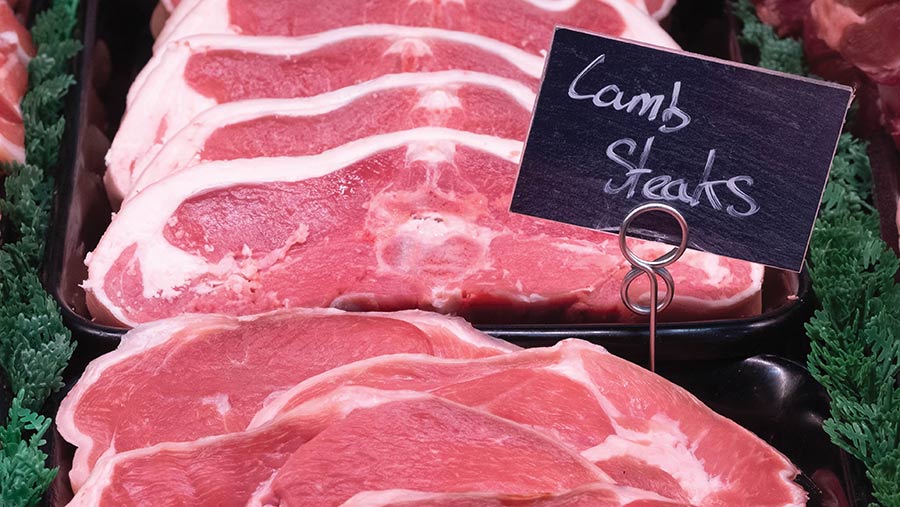Better labelling needed as kosher meat reaches non-kosher markets
 © Tim Scrivener
© Tim Scrivener More than half of all non-stunned, kosher-slaughtered cattle are rejected by Jewish authorities and sold to the wider public instead, Defra figures show.
Kosher slaughter, under traditional Jewish Shechita laws, dictates that animals must not be stunned before they are killed.
This is allowed under an exemption to welfare legislation which otherwise requires all animals to be stunned before slaughter to minimise suffering.
The exemption for both Muslim halal meat and Jewish Shechita is caveated by additional guidance on religious slaughter, which states meat from animals slaughtered without stunning should be intended for consumption by Jews or Muslims.
See also: Pressure mounts to end non-stun sheep slaughter
But Defra’s latest report, based on a Food Standards Agency survey of abattoirs, showed that 51% of cattle and 43% of sheep slaughtered for kosher markets, were rejected in 2021-22.
The rejected meat was then sold as halal or to the wider public.
The figures collated in March 2022 also reveal a marked increase in rejection levels compared with the previous survey in 2018, when just 15% of cattle and 23% of sheep which had been slaughtered while conscious, were sold on to wider public markets.
Post-slaughter checks
A senior official in the meat processing sector suggested post-slaughter checks in the UK were stringent and failure was highly likely.
A single bruise in the meat, lightly damaged tendons or bones, and signs of abnormality in the organs, will result in the carcass being rejected as kosher.
The official, who asked not to be identified, also pointed out that Shechita law forbids the consumption of any hindquarter cuts.
“That means half the meat from animals which do meet Shechita rules is discarded by the kosher sector,” he explained.
“But it is still deemed to be fit for wider consumption and sold to buyers, largely in the food-service sector,” the official claimed.
He estimated that as little as a quarter of the meat from Shechita slaughtered cattle was sold for the intended kosher market.
Welfare concern
The RSPCA, Compassion in World Farming and the British Veterinary Association all support an end to non-stun slaughter, to improve animal welfare at the time of death.
The government’s advisory body, the Farm Animal Welfare Council, has also stated that animals slaughtered without pre-stunning are likely to experience “very significant pain and distress” before they become unconscious.
The Defra figures have also sparked concern from the National Secular Society which campaigns for the separation of church and state.
The society’s head of campaigns, Megan Manson, said: “It is both alarming and disturbing to think that more than half of all cattle, and more than 40% of sheep that undergo Shechita slaughter may not even end up in the kosher market.
“It means these animals endured a cruel death for absolutely no reason.”
Ms Manson added: “To make matters worse, that meat is likely to have been sold to the unwitting general public.
“The law is clear, that meat from animals killed under the religious exemption is supposed to be intended for religious communities in the UK.
“A business model that relies upon such meat being sold onto the general market, unlabelled, is both ethically and legally dubious.”
Labelling
The National Secular Society is therefore calling for mandatory labelling of meat from non-stunned slaughter.
In 2021, a public opinion poll found 70% of UK consumers thought food produced from religious non-stun slaughter methods should be clearly labelled, Ms Manson said.
But Shechita UK’s director Shimon Cohen strongly rebuffed the criticisms and said labelling of kosher meat was both unnecessary and potentially discriminatory.
The number of cattle killed for kosher meat is tiny, accounting for just 1% of cattle throughput, Mr Cohen said.
The vast majority that is not taken into the Jewish market ends up as halal and only a small fraction of meat enters the wider food-service sector, he said.
“There is more chance of going to the moon for your holidays than eating kosher meat by mistake,” Mr Cohen said.
He also dismissed the call for labelling of kosher as “religious discrimination”.
“If you consider labelling food with one method of slaughter, then all other methods, like captive bolt, suffocation and gassing should be displayed on the pack,” he said.
“If Shechita methods alone are identified, this would be religious discrimination.”
The FSA Slaughter Sector Survey, England and Wales
Carried out by Official Veterinarians between 7-13 March 2022 the survey (PDF) took a snapshot of abattoir activities and throughput for the Food Standards Agency, Defra and the Welsh Government.
Across 161 red meat slaughterhouses, it discovered that 1% of 33,750 cattle were not stunned before slaughter and 23% of 219,016 sheep were not stunned during the survey period, primarily for the halal market.
All halal non-stunned animals were accepted, but Shechita rejections accounted for 51% of cattle (142 out of 276), and 43% of sheep 43% (223 out of 520).
